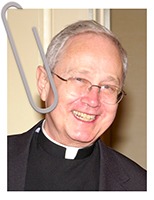Two questions – What is this thing called “new normal”? Is it really new?
“New normal” is a state to which an economy, society, and even an individual, settles following a disruptive crisis. It differs from the situation that prevailed prior to the start of the crisis.
Renowned science fiction writer Robert A. Heinlein used the phrase in his 1966 novel, The Moon Is a Harsh Mistress, He tells a lunar colonist
“I hope you will comply willingly; it will speed the day when I can bow out and life can get back to normal — a new normal free of the Authority, free of guards, free of troops stationed on us, free of passports and searches and arbitrary arrests.”
Is the phrase new? Wikipedia points out the term has been employed in relation to World War I, September 11 attacks, financial crisis of 2007–2008, the aftermath of the 2008–2012 global recession, the COVID-19 pandemic, and other events.
Is the experience new? Certainly not! Think of the time after the fall in the Garden, the many inflection points in the history of Israel – the slavery in Egypt, the Babylonian Captivity. Each of these periods called for adjustments to a life different from what they had known before the crisis.
What is unique about Israel is its historians and theologians constantly referred back the Exodus. It was the key for understanding themselves!
Mark’s Gospel and the “New Normal”
Jesus announced a new way of living summed up in just two commandments. He offered it as a new normal. His preaching was both attractive and challenging.
Then came the crisis of his death. Those who accepted the new normal had to make sense of what they did not see coming. Gradually they adjusted to the new normal of his not being present to them in the same way as when he walked among them.
The Acts of the Apostles tells of their struggle to figure out how the laws and attitudes they grew up with fit in. Strong internal factions emerged with very different opinions. They did not see this coming. There were in turmoil.
Mark was writing at a time when Jews in Judea were under persecution from the Romans. They experienced not only the destruction of their towns but the even greater horror of the destruction of the temple. Their world collapsed! Why? What had gone wrong? Why was Jerusalem destroyed? Jesus was a miracle worker. How could he let this happen? How could they make sense of their suffering?
We know Mark as an Evangelist. However, as an evangelist, he was also a pastor. Pastors offer guidance, especially in times of crisis.
Mark, the Pastor
Mark, as any good pastor would, used the Jesus stories circulating in oral tradition to help his readers understand how the gospel is “good news” … even in the face of persecution.
Mark picks from these stories and arranges them to make sense out of their suffering in the light of the death of Jesus. Each one furthers the narrative. “He’s not just a miracle worker; he’s more.” Even Jesus’ world collapsed… and yet, in his resurrection, he triumphed!
His basic point seems to be ”look at Jesus”. He went through the worst imaginable sufferings… yet he rose to the fullness of life. Hang in there! ‘Those who lose their life for my sake and for the sake of the gospel will save it’ (8:35).
To be continued…
Mark as pastor today. Two further questions!
- Have I thought to listen to Mark as my pastor as I seek a new normal?
- Can I listen to Gospels for the next 12 Sundays for what Mark offers in helping to a “new normal”?
Click below for an audio version of this Vincentian Mindwalk


Thanks, John. I can’t wait till I read the continuation on Mark’s connecting the Jesus’ Gospel to the concrete lives of Christians.